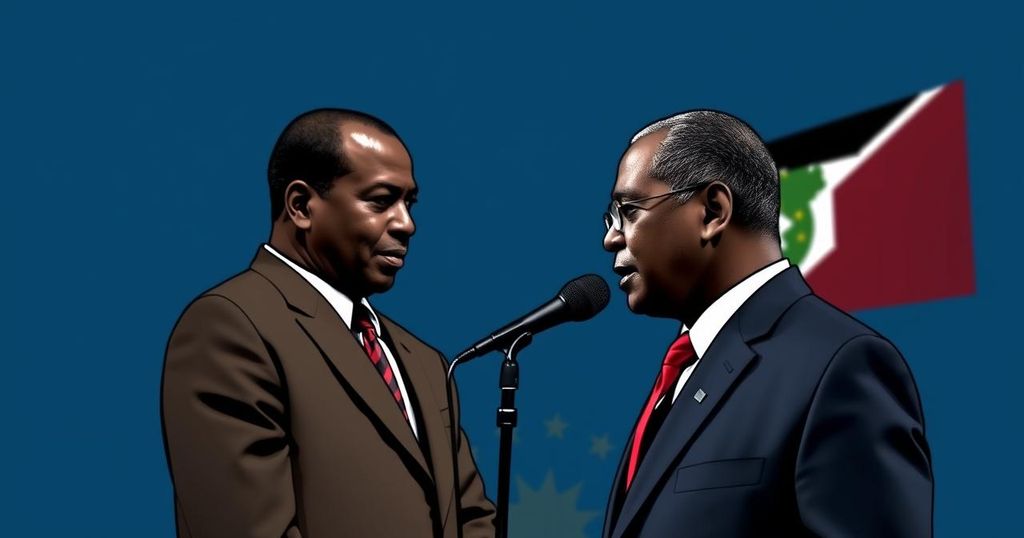Standoff Over Haiti’s Foreign Minister Highlights Political Strife and Diplomatic Tensions

Haiti’s Transitional Presidential Council is in conflict over Foreign Minister Dominique Dupuy’s potential removal due to her stance against the Dominican Republic’s deportation of Haitians. Prime Minister Garry Conille has resisted demands for her dismissal, further complicating the council’s authority amidst claims of corruption and political strife.
Tensions are escalating within Haiti’s Transitional Presidential Council as members demand the removal of Foreign Minister Dominique Dupuy, citing her harsh criticisms of the Dominican Republic in light of its mass deportations of Haitians. On Tuesday, certain council members urged Prime Minister Garry Conille to dismiss Dupuy, alleging loss of trust in her capabilities. In response, Conille has resisted their demands, resulting in a standoff that reflects broader challenges within the transitional government. Notably, President of the Council Leslie Voltaire asserted that the council possesses the majority votes to expedite Dupuy’s dismissal and cautioned against participation in future council meetings until she is removed. A scheduled cabinet meeting was postponed, although Conille intends to address the situation by condemning the Dominican Republic’s deportation policies. Amidst this political turmoil, the legality surrounding the authority to dismiss a minister remains ambiguous, particularly due to Haiti’s absence of an active parliament. Conille referenced the 1987 Constitution to underscore the separation of powers, asserting that he would not comply with the council’s demand to fire Dupuy, whom he praised for her significant diplomatic achievements. Voltaire, however, has remained steadfast in his opposition, declaring that the council has reached a definitive decision regarding Dupuy’s ousting and even alleging her engagement in treason. This tension has been further complicated by allegations of corruption against other council members who voiced support for Voltaire’s stance. Dupuy, who previously withdrew her nomination due to personal safety concerns, is resolute in her position. She expressed disappointment over the council’s focus on her instead of addressing critical humanitarian issues, stating her willingness to engage in constructive dialogue for the benefit of the Haitian populace.
The conflict regarding the role of Foreign Minister Dominique Dupuy within Haiti’s transitional government underscores significant challenges in governance and diplomacy, particularly given the strained relations between Haiti and the Dominican Republic. With the Dominican government conducting mass deportations of Haitians, Dupuy’s vocal criticisms have elicited strong reactions from members within the Haitian council, revealing deep fractures in both political unity and strategy. The ongoing power struggle highlights the intricacies of Haitian politics, especially in the absence of a functioning parliament, rendering traditional democratic processes concerning ministerial appointments and dismissals unclear.
In summary, the demand for a foreign minister’s removal has precipitated a standoff within Haiti’s Transitional Presidential Council, emphasizing the precarious nature of governance amid international diplomatic challenges. The situation illustrates the conflict between individual council members and the prime minister, as well as the broader implications of Dominican deportation policies on Haitian politics and civil discourse.
Original Source: www.miamiherald.com







